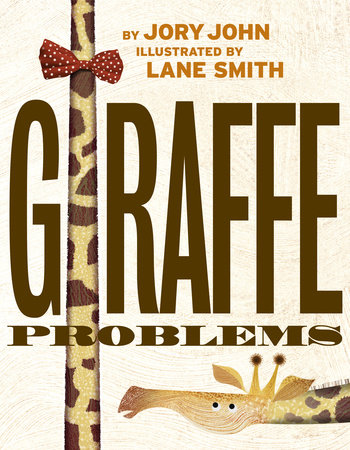Giraffe Problems Is a Picture Book That Hits on a Very Human Problem
by Jennifer Garry
Have you ever read a children’s book that hit you in the feelings so hard and so unexpectedly that you wanted to share it with as many people as you could? That’s what happened to me when I read Giraffe Problems, written by Jory John with illustrations by Lane Smith. A follow-up to their 2016 collaboration, Penguin Problems, I was expecting to laugh and be entertained by a silly, possibly grumpy giraffe.
But when my daughter and I cuddled up on the couch with it, we got so much more.
The story centers on Edward, an insecure, self-conscious giraffe. Edward does not like his neck. He thinks it’s too long, too bendy, too necky. He tries all sorts of things to camouflage it but constantly falls back on comparing himself to other animals — a habit that only makes him feel worse.

Then Edward meets Cyrus, a talkative turtle who just so happens to feel bad about his neck for a completely different reason. Cyrus thinks his neck is too short. The turtle explains that he has been staring longingly at a banana way up high in a tree for days, but his short little neck could never reach it. Edward realizes that he can help his new friend and uses his long, bendy, necky neck to grab a bunch of bananas from the tree. In the end, the two friends feel much better about their necks and don matching bowties to highlight them.
So why did this story get me to the core?
First, it hits on something we all tend to do: pick ourselves apart and compare ourselves to others. Whether it’s our looks, our talents, or our parenting skills, most people have played the comparison game at one point or another. It generally does not end positively.

As the mother of two girls, I have worked very hard to make sure I don’t talk negatively about myself in front of them. I’ve never wanted my girls to pick up on the terrible habit of comparing themselves to the women next to them or to women on magazine covers.
Still, my tween has reached the age where she is suddenly incredibly self-aware. She studies herself, tearing what she sees to shreds. She is Edward. Instead of comparing herself to other animals in the wild, she compares herself to other girls in the cafeteria. And the result is much the same as Edward’s initial determination: She is both not enough and too much all at once.
Yet Edward’s story fills me with hope. Hope that my daughter will find her Cyrus and that together they’ll show each other that their differences aren’t deficits. Hope that one day soon she’ll realize that she doesn’t have to be just like everyone else. Hope that reading stories like this one will help the message sink into my youngest daughter’s subconscious and stop her from tripping down the same comparison trap.
If nothing else, this book is sure to become worn and well-loved as we each (myself included) pick it up when we need a little reminder that we are all pretty fantastic just the way we are.
-
Get the Book:

